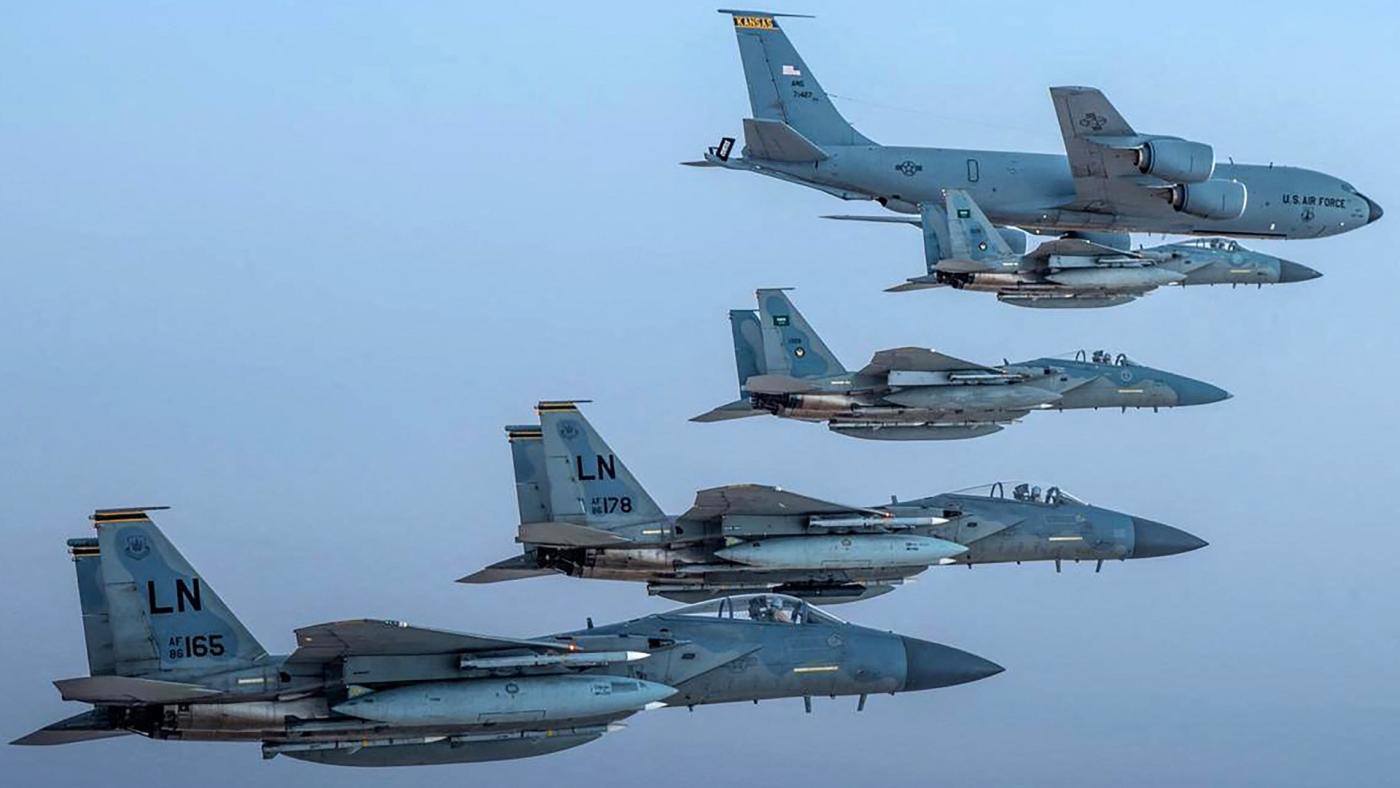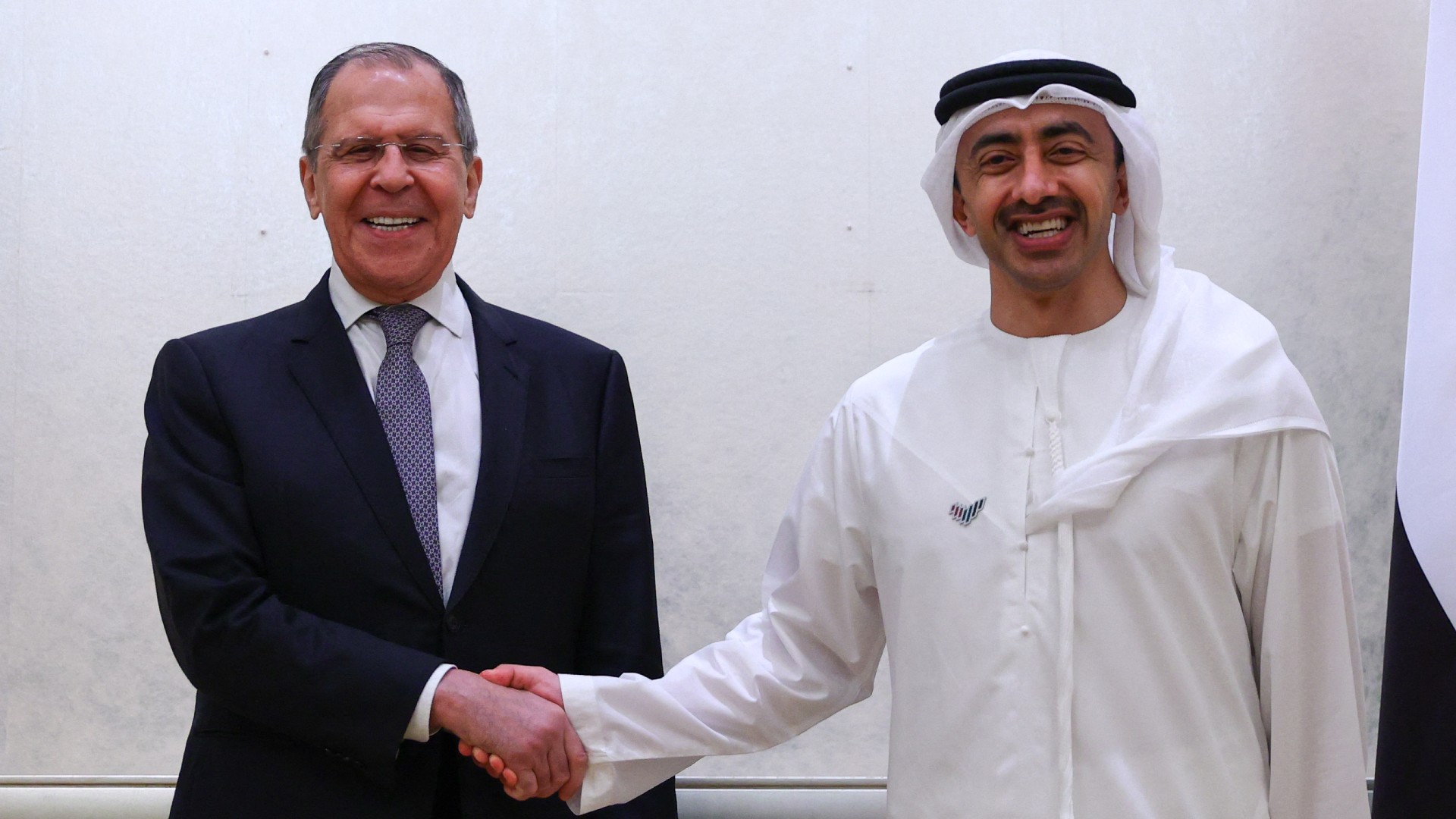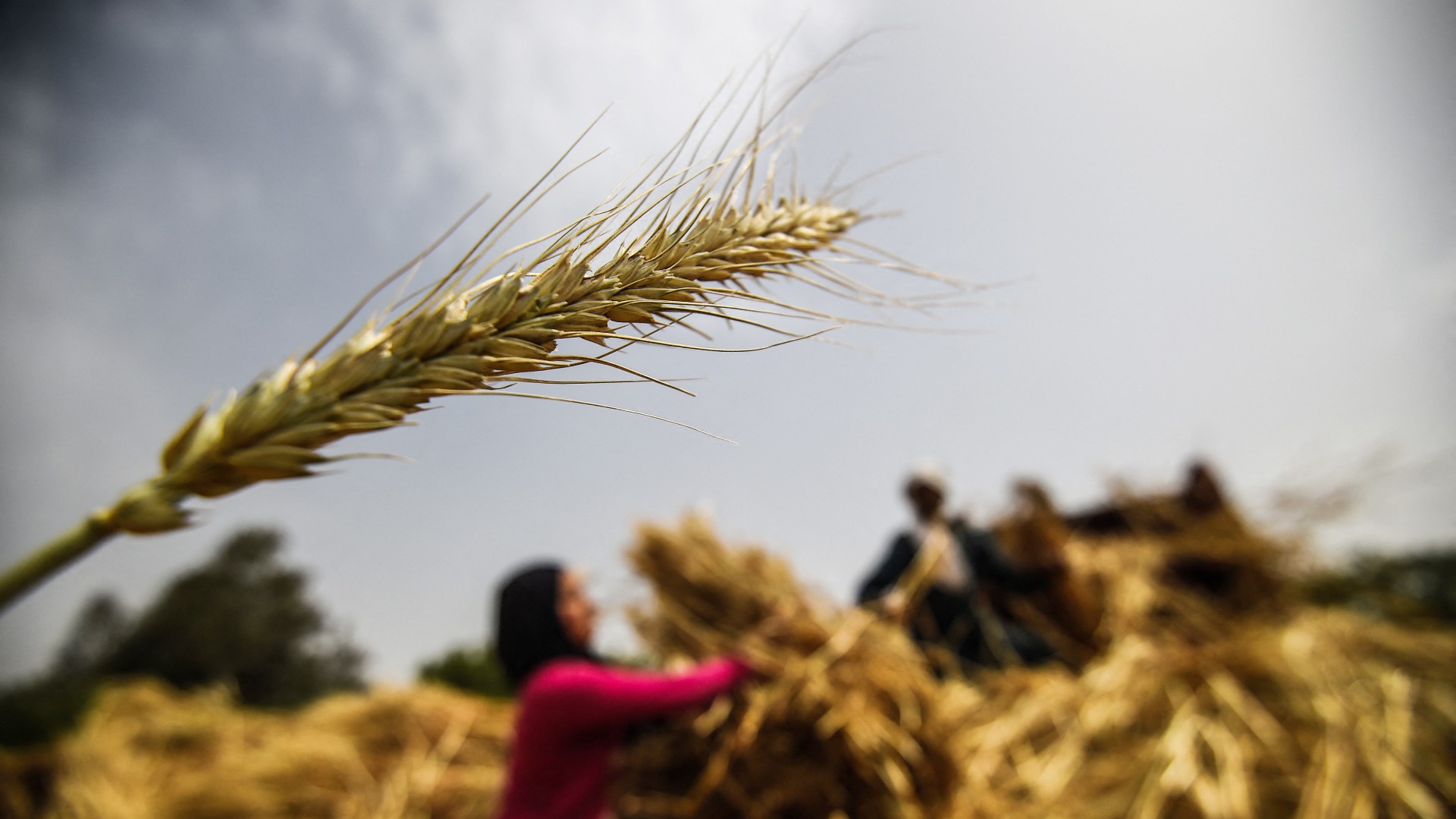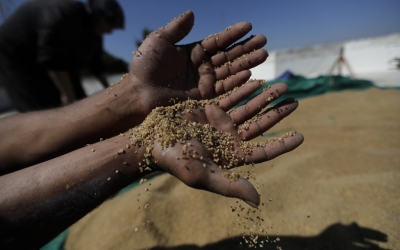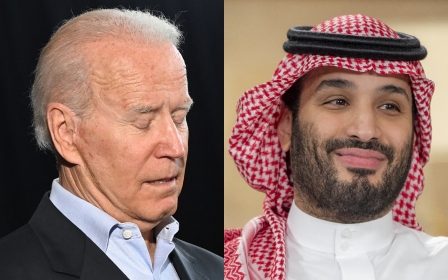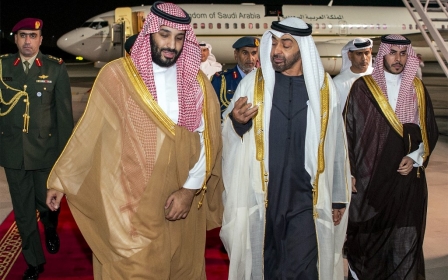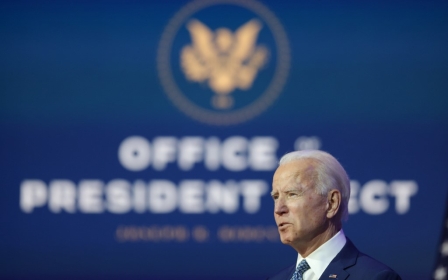Russia-Ukraine: Putin's war means Mohammed bin Salman has Biden over a barrel
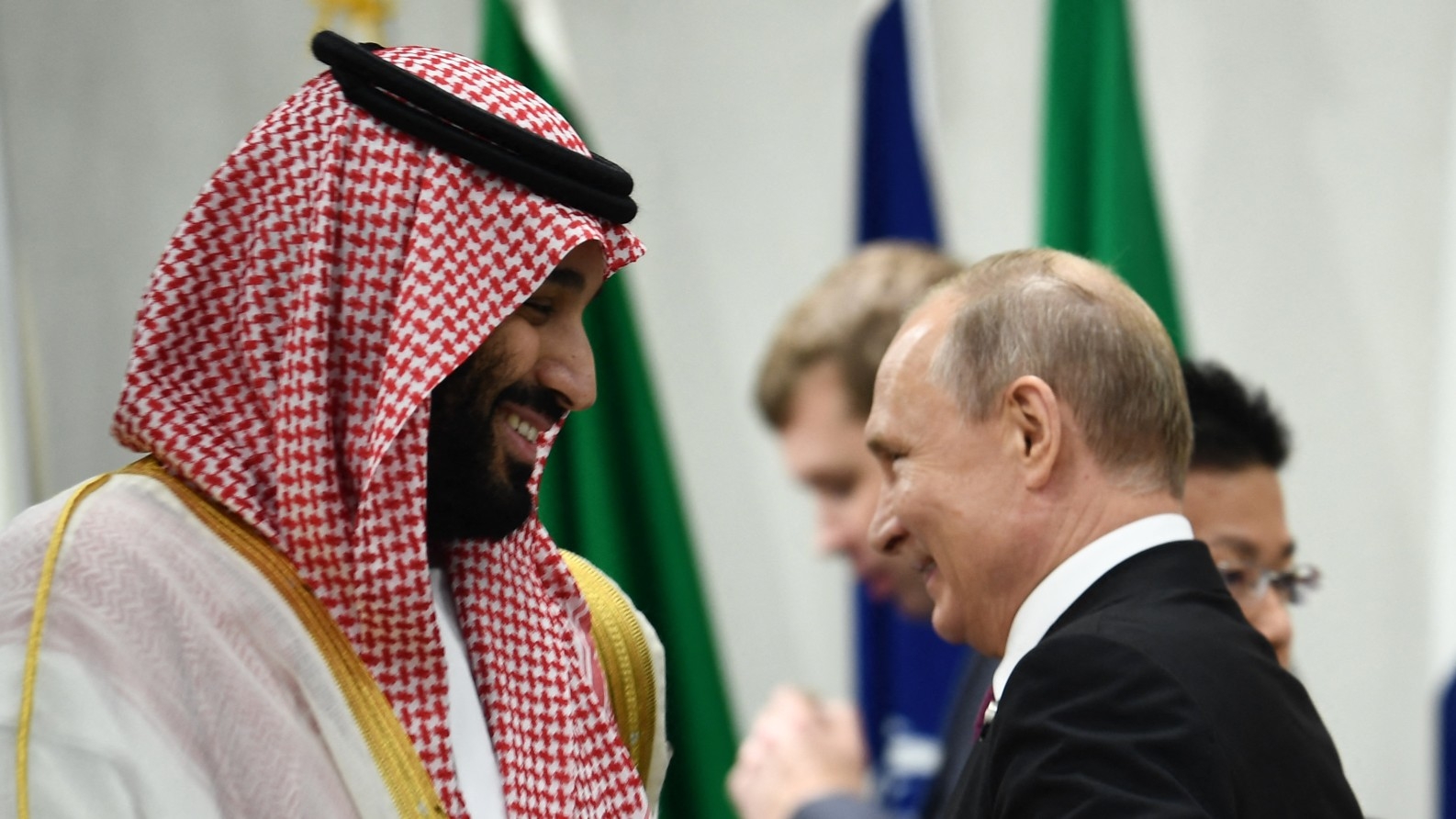
Three short weeks ago, US President Joe Biden was in no hurry to talk to Saudi Arabia's de facto ruler and the next king of a major US regional ally.
Mohammed bin Salman has set Biden a high price for playing ball with the price of oil
In keeping with his policy of treating the presumed murderer of the Saudi journalist Jamal Khashoggi as a pariah, Crown Prince Mohammed bin Salman (MBS) could go hang. But after Russia’s invasion of Ukraine sparked a frenzied rush to keep the price of oil from reaching $300 a barrel, it is the crown prince’s turn to be in no hurry to pick up the phone.
How the wheel of fortune has turned for the crown prince.
When Boris Johnson arrives in Riyadh this week cap in hand - he and MBS are said to be in touch by WhatApp Messenger - the Saudi crown prince can afford to keep his British guest waiting. Bin Salman has set Biden a high price for playing ball with the price of oil.
The Wall Street Journal reported that he wants more US support for the war in Yemen, help with the Saudi nuclear programme, and legal immunity in the US against court actions by the likes of Saad al-Jabri, a former Saudi intelligence officer who alleged that the crown prince also tried to kill him.
New MEE newsletter: Jerusalem Dispatch
Sign up to get the latest insights and analysis on Israel-Palestine, alongside Turkey Unpacked and other MEE newsletters
Two of those demands are possible. The third is not.
In search of legitimacy
Above all, the crown prince seeks legitimacy. He has killed, tortured, imprisoned and stolen his way to the top, by ruthlessly eliminating any rival prince who has as great a claim as he to the throne.
What Biden seeks from him is oil production that will keep the price of a barrel within limits.
The crown prince's price is far-reaching and strategic, Biden's is temporary and tactical.
It is not clear whether either will deliver.
MBS puzzled his latest interviewer, Graeme Wood of The Atlantic, by refusing to pardon prisoners whose crime was to oppose a policy that no longer existed - such as the boycott against Qatar.
The crown prince’s reply was that if he extended forgiveness to good people who deserved it, he would have to extend it equally to bad people who did not. Why would one rule out the other, Wood mused.
"Then I realized that MBS was not saying that the failure of his plan to remake the kingdom might lead to catastrophe. He was saying that he’d guarantee it would. Many secular Arab leaders before him have made the same dark implication: support everything I do, or I will let slip the dogs of jihad. This was not an argument. It was a threat," Wood wrote.
Words are never enough for a ruler as brutal as Mohammed bin Salman. Within days of the interview being published, 81 inmates had been executed in a single day, 41 of them Shia Muslims from the eastern Qatif region.
If bin Salman’s "Take me as I am" message is clear, it is not so obvious whether Washington’s relations with the Gulf state will revert to default.
The default itself could have changed.
The real change
The kingdom's faith in the nation that provides its security has been shaken by Biden’s arrival, the US pullout from Kabul, and the feeling that the US military motor is still stuck in reverse. Yemen is another sticking point, after Biden used his first foreign policy speech to say that ending the war was a key goal.
In office, Biden is stuck between the declarative and his fear of enacting real change.
Biden has the levers in place to ground Saudi jets. The Royal Saudi Air Force is dependent on US and British support for its air fleet of F15 fighter jets, Apache helicopters, and Tornado aircraft. If either Washington or London withdrew their technicians or halted the flow of spare parts, Saudi jets would be grounded.
Biden published the CIA report on Khashoggi’s murder, but refused to back a UN investigation into the affair. He said he would end support for offensive operations in Yemen, and yet the Saudi-led war is by definition offensive.
Nor has he called for an immediate end to the Saudi blockade of Yemen.
For all his dislike of the man, Biden has done as much to keep Mohammed bin Salman in place as his predecessor Donald Trump. The war he launched on Yemen will have taken 377,000 lives by the end of the year, according to the UN. Nevertheless, American flip flop between Trump and Biden has shaken Saudi and Emirati faith in their reliance on Washington.
Biden’s presidency has triggered changes in the foreign policy of each Gulf state.
Saudi Arabia put a stop to its doomed blockade of Qatar, and the UAE is investing in Turkey.
Both countries have been making overtures to Russian President Vladimir Putin. Saudi Arabia signed a military cooperation agreement with Russian Defence Minister Sergei Shoigu, one of the five siloviki - hard men - who are conducting the war in Ukraine, at a trade fare in Moscow last August.
And it will not have gone unnoticed that the kingdom has now invited Chinese President Xi Jinping to visit the kingdom, a visit that could take place in May.
Mixed messages
The United Arab Emirates backed a resolution at the United Nations General Assembly demanding an immediate Russian withdrawal, and abstained from a vote on a similar text at the Security Council.
UAE presidential adviser Anwar Gargash said that taking sides "would only lead to more violence".
MBS is still reckless and oblivious of the consequences of his actions. There is only one will at the centre of his universe. His
Russian oligarchs, businessmen and young people feeling their country’s impending isolation are pouring into Abu Dhabi, which is rapidly replacing London as the international laundromat of Russian money.
The abstention at the Security Council was a direct reply to Secretary of State Antony Blinken’s attempts to enlist the UAE in "a strong international response to support Ukrainian sovereignty".
But the messages from Abu Dhabi are mixed.
The Emiratis have wobbled on lowering the price of oil. A statement by UAE ambassador in Washington Yousef al-Otaiba, favouring an increase in production, sent the price of a barrel tumbling until it was contradicted by the energy minister, Suhail Mohamed al-Mazrouei, who said UAE would stick to OPEC’s monthly output agreement.
There are two other signs that the Emiratis do not want to alienate Washington, while keeping relations open with Putin. Their foreign minister, Abdullah bin Zayed, had planned a visit to Russia. Under US pressure, he cancelled the visit, citing Covid as the reason.
The UAE also made a U-turn on their policy on issuing visas to Ukrainians, which they had initially restricted.
It is in neither Gulf state’s interest to lower the price of oil, as record revenues flow into cash-strapped state budgets. The blunt truth is that Putin’s war is good news for both. Who said that oil had reached its peak?
Winners and losers
Money flowing - once again - into the coffers of the two Gulf states that have, above all others, seeded and funded dictators, interventions and coups is not good news for the Arab world. As has happened many times in the past, the wealth these despots get will only cement and embolden their rule.
They will feel freer to throw their weight around the Arab world to keep like-minded despots like Abdel Fattah el Sisi and Kais Saied of Tunisia in power. Whatever now happens in Ukraine, Mohammed bin Salman and Mohammed bin Zayed, the crown prince of Abu Dhabi, are winners.
In the old days of Gulf oil wealth, some of it was shared. Saudi King Abdullah spent tens of billions of dollars buttressing fellow Arab states. This happens no more
MBS’s interview with The Atlantic showed he had learned nothing from his past mistakes. He is still reckless and oblivious of the consequences of his actions. There is only one will at the centre of his universe. His.
And whatever else happens, the Arab people will be the losers.
Even before Putin’s invasion, they lived in states which are much weaker than they were when the Arab Spring broke out in 2011. Many are perilously close to bankruptcy.
Already facing food inflation not seen since the Arab Spring, Egypt will be hard put to replace Ukrainian supplies of wheat. The price of wheat has increased by 44 percent and of sunflower oil by 32 percent overnight. Egypt has four months' wheat supply left.
Foreign investors are fleeing the Egyptian debt market. The economist Mamdouh al-Wali describes Egypt as being "under siege both politically and economically" as investors flee emerging markets. "The severity of the decline in foreign purchases of Egyptian government debt instruments has increased in the wake of the Russian invasion of Ukraine in a bid to stay away from unstable emerging markets."
Al-Wali continued: "Banking assessments indicate that around $3bn left [Egypt] in the week that followed the invasion. Whether the war in Ukraine continues or ends, the departure of foreign investment in Egyptian government debt instruments is only likely to increase with the rise of US interest rates. Five such increases are expected during the current year."
Lebanon has no more than 45-60 days of basic food. With unemployment soaring, Jordan is struggling to emerge from its Covid-19 slump amid simmering social discontent in the east of the country. Public shows of discontent against the king are no rarity.
At least in the old days of Gulf oil wealth, some of it was shared. Saudi King Abdullah spent tens of billions of dollars buttressing fellow Arab states. This happens no more.
A third explosion
At no time in the past has the gap between rich and poor been more grotesque: between former royal couples like Princess Haya and Sheikh Mohammed bin Rashid Al-Maktoum, who spent $3m on strawberries in one summer, or bin Salman who spent $450m on a fake da Vinci, and record levels of poverty and unemployment in the region.
Before the Russian invasion of Ukraine, an authoritative study by the UN Economic and Social Commission for West Asia expected poverty rates in the Arab region to decrease by one percent over the next two years. It is still 27 percent.
"Unemployment rates, however, will remain among the highest worldwide, especially those of women and youth, although they are expected to decrease from 11.8 percent in 2021 to 10.7 percent in 2023," said Ahmed Moummi, lead author of the survey.
If ever the tension between the rulers and the ruled could be regarded as pre-revolutionary, it is now.
As usual the rich European Union is looking the other way. It's looking east, not south. Is it prepared though for a third explosion that will be triggered by the unprecedented price hike of basic commodities that will define this century, after Kabul and Ukraine? I doubt it.
And yet Europe's policy of going cap in hand to dictators will surely come back to haunt it.
The views expressed in this article belong to the author and do not necessarily reflect the editorial policy of Middle East Eye.
This article is available in French on Middle East Eye French edition.
Middle East Eye delivers independent and unrivalled coverage and analysis of the Middle East, North Africa and beyond. To learn more about republishing this content and the associated fees, please fill out this form. More about MEE can be found here.



